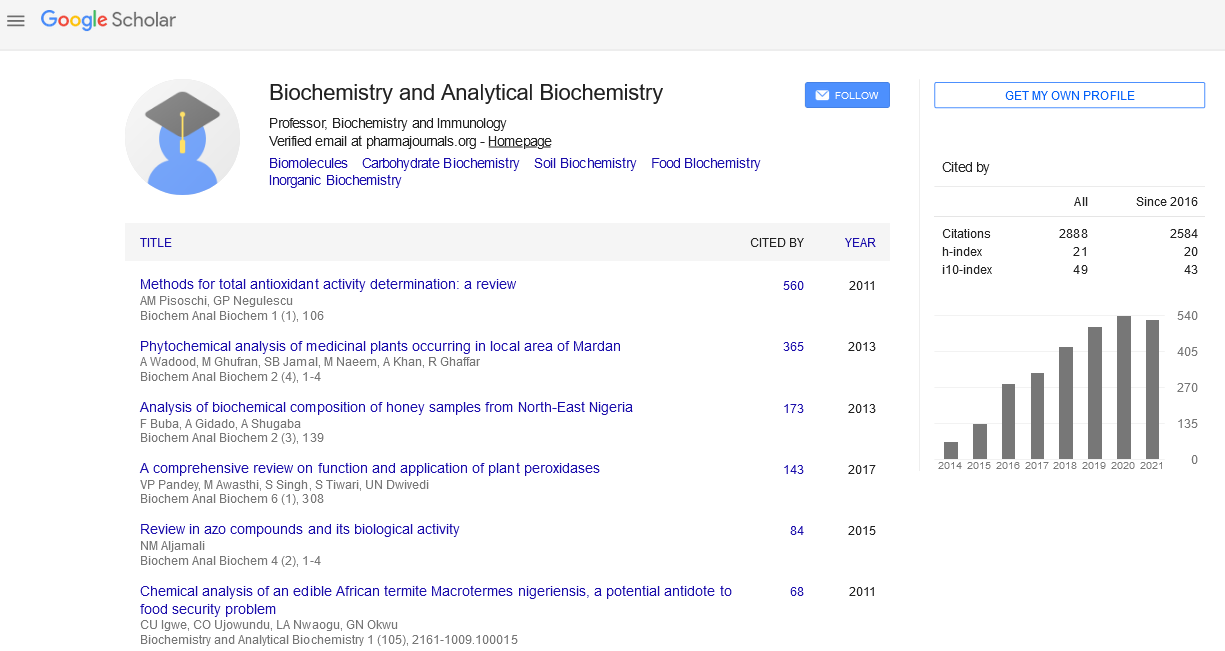Indexed In
- Open J Gate
- Genamics JournalSeek
- ResearchBible
- RefSeek
- Directory of Research Journal Indexing (DRJI)
- Hamdard University
- EBSCO A-Z
- OCLC- WorldCat
- Scholarsteer
- Publons
- MIAR
- Euro Pub
- Google Scholar
Useful Links
Share This Page
Journal Flyer

Open Access Journals
- Agri and Aquaculture
- Biochemistry
- Bioinformatics & Systems Biology
- Business & Management
- Chemistry
- Clinical Sciences
- Engineering
- Food & Nutrition
- General Science
- Genetics & Molecular Biology
- Immunology & Microbiology
- Medical Sciences
- Neuroscience & Psychology
- Nursing & Health Care
- Pharmaceutical Sciences
Abstract
N1,N12-Diacetylspermine as a Blood Based Lung Cancer Biomarker
Johannes F Fahrmann and Samir M Hanash
It is becoming well recognized that metabolic perturbations are inherent hallmarks of tumorigenesis. Metabolites represent the functional products of cellular processes, which are highly responsive to both pathological and environmental stimuli. As such, metabolites are the closest representation of an individual’s current physiological state. Therefore, exploration of metabolic alterations in the context of disease pathophysiology, most notably cancer, holds great promise and considerable clinical value. This field of research has benefited from technological advances in mass spectrometry and ultraviolet-visible spectroscopic analyses that have enabled comprehensive metabolomic analyses of diverse arrays of metabolites, polyphenols and lipids in a variety of biological matrices with substantial robustness and sensitivity . As a result, interest in the application of metabolomics to identify key metabolic differences related to pathological conditions has expanded. Indeed, metabolomics has been explored to gain insights into the pathophysiology of cancer, develop methods predictive of disease onset, and reveal new biomarkers relevant to disease diagnosis and prognosis.


